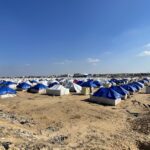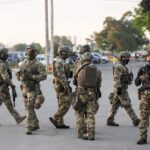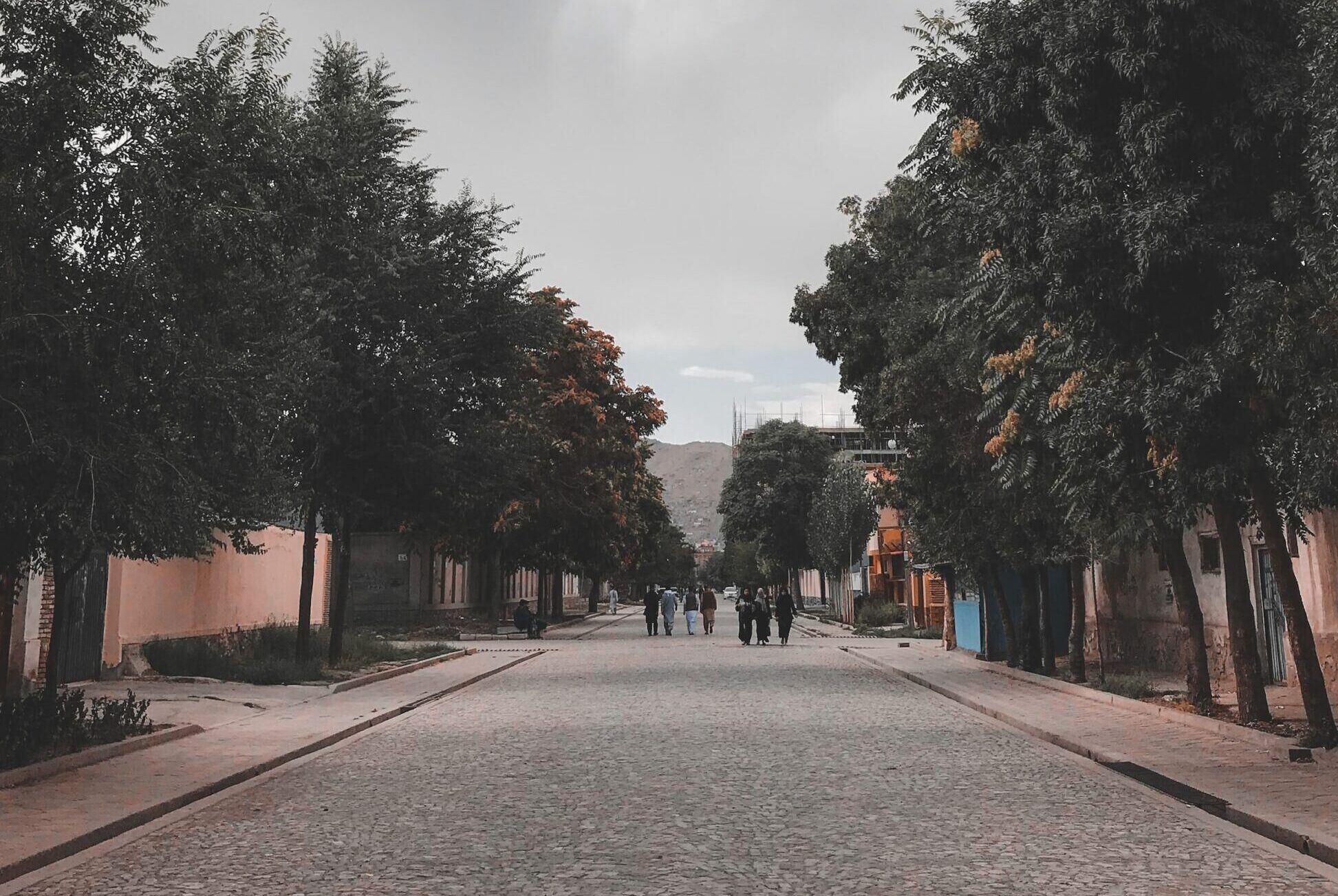Hauling women off of a plane when they had almost made their escape to study overseas. Banning women from one of the world’s most stunning national parks. Pushing girls out of school at age 10. Dismissing female nursery school teachers. Shuttering all beauty salons at a cost of 60,000 women’s jobs.
The last month or two has been a busy time for the Taliban. As we mark the 22nd anniversary of the 9/11 attacks that led to the Taliban being toppled, they are fully back in charge and deeply unchanged, despite promises to the contrary. These are the latest among what UN experts describe as their “widespread, systematic, and all-encompassing” attack on the rights of women and girls.
It’s not a coincidence that things escalated in August, as many of the world’s diplomats enjoyed their summer holidays. The Taliban have a talent for timing. In a single week in 2022, they banned women from higher education and from working for aid organizations. The dates? December 20 and December 24, 2022, after Western diplomats clocked out for the Christmas holidays.
But for two years now, Taliban authorities have denied women and girls their rights, including to education, work, movement, and assembly. And when it comes to women’s rights in Afghanistan, it feels like the world’s diplomats have been on vacation every day of that time.
The response to the Taliban’s misogynistic abuses, when there was one, has been chaotic, uncoordinated, and lacking in urgency — mostly a sigh and a shrug with statements expressing deep concern.
Many diplomats are more focused on “engaging” with the Taliban — to no apparent benefit to human rights — seeking Taliban partnership on counterterrorism, counter-narcotics, and natural resource extraction. Perhaps this is just a stark illustration of what we already knew — in a world of overwhelmingly male leaders, almost no politician is ready to expend real political capital to back women and girls.
But what should they be doing? It’s not that hard to figure out.
What Needs To Be Done Now
The UN Human Rights Council will convene from today till October 13, 2023. During this session, its members should — finally — create a new accountability mechanism for Afghanistan, with the capacity and mandate to collect and preserve evidence of all international crimes committed there in Afghanistan, including a strong focus on crimes against women and girls.
The council should also renew the mandate of the special rapporteur on the human rights situation in Afghanistan and increase the team’s resources. The council should mandate ongoing monitoring of and meaningful response to the women’s rights crisis, including implementing all recommendations of the June 2023 joint report to the council by the special rapporteur and the UN Working Group on discrimination against women and girls.
For two years now, Taliban authorities have denied women and girls their rights, including to education, work, movement, and assembly. And when it comes to women’s rights in Afghanistan, it feels like the world’s diplomats have been on vacation every day of that time.
A UN Security Council assessment is due on November 17, 2023, and is supposed to provide “forward-looking recommendations for an integrated and coherent approach” by the international community to “the current challenges faced by Afghanistan.” States should assess these recommendations through the lens of what relief they would provide to those experiencing human rights violations by the Taliban, especially women and girls. States should also be looking ahead toward renewing the mandate of the UN Assistance Mission in Afghanistan (UNAMA) when it expires in March 2024, with its mandate to monitor the human rights situation and staffing to do so fully intact.
In October 2022, prosecutors in the Office of the Prosecutor at the International Criminal Court (ICC) were authorized to resume the investigation into crimes committed in Afghanistan. Member states should ensure that the court has the resources and cooperation necessary to fulfill its mandate across all the situations on the court’s docket, including Afghanistan. At the same time, the ICC prosecutor should expand his probe to all parties to the conflict in Afghanistan, including US forces. Human Rights Watch, Amnesty International, the International Commission of Jurists, and Madre have all adopted the position that the Taliban have committed crimes against humanity of gender persecution, which fall within the court’s jurisdiction.
States can bring an action in the International Court of Justice against another state over the interpretation or application of the Convention on the Elimination of All Forms of Discrimination against Women — a convention that Afghanistan signed and that the Taliban are blatantly violating. Lawyers have reached out to various states about bringing a case about the situation in Afghanistan, but no state has yet agreed to take action. That should change.
The UN is preparing a treaty on crimes against humanity. Many advocates are calling for the treaty to strengthen protections for women and girls, including in situations like the one in Afghanistan. A treaty that strengthens international protections, including the rights of women, for crimes against humanity should get the backing of states.
Afghan women are fighting every time — and usually losing — to be present at meetings where their future is being decided. Diplomats — and the UN itself — should heed UN Security Council resolution 1325, which calls for women’s “equal participation and full involvement in all efforts for the maintenance and promotion of peace and security.”
Afghanistan continues to be gripped by a devastating humanitarian crisis. Taliban abuses are fueling the crisis, but drastic cuts in aid triggered it — and aid is again falling dramatically. Donors should boost humanitarian aid, particularly through nongovernmental organizations. They should fund women-led Afghan aid organizations, Afghan organizations working to uphold human rights, and programs bringing remote education and employment opportunities to Afghan girls and women. The Afghan women I speak to are so very angry and tired. Some have even gone on a hunger strike. They feel abandoned and are demanding that the world should do more to defend their rights. There is no excuse for not heeding their call.














